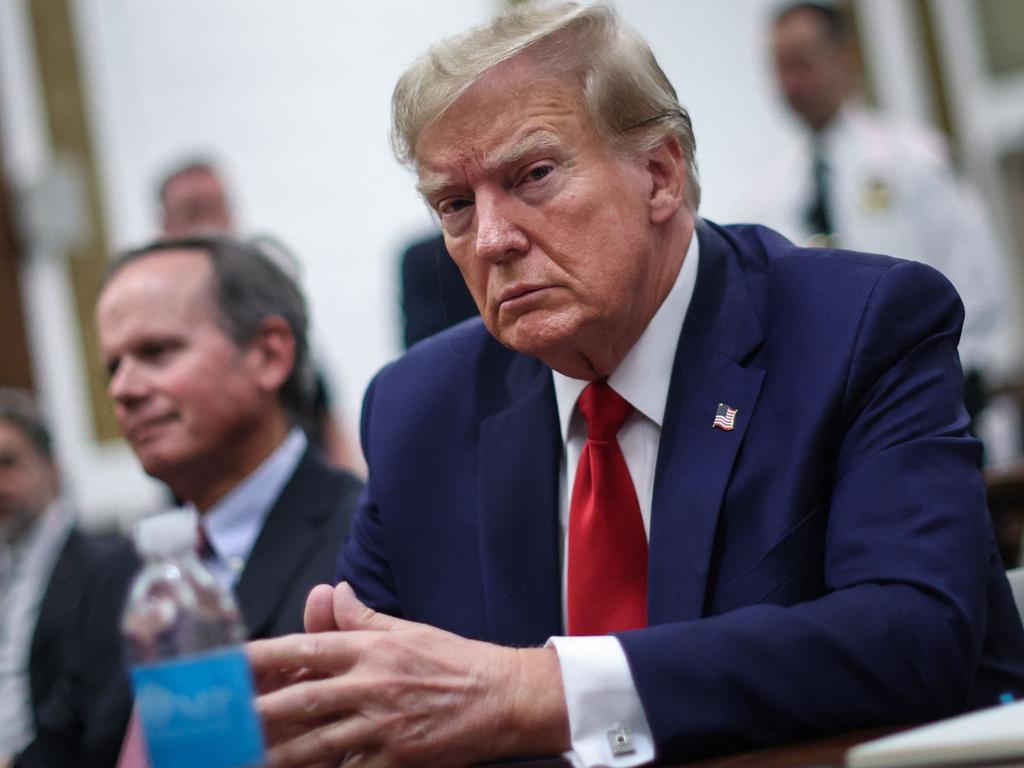Trump Supreme Court case: judges sceptical about ballot ban
Special session at nation’s highest authority on whether the former president violated the 14th amendment of the US constitution and cannot run in the 2024 election

US Supreme Court judges appeared sceptical of arguments for removing Donald Trump from the presidential ballot, as his lawyers conceded that the events of January 6 were “shameful” and “criminal” but insisted he had not engaged in insurrection.
The nine judges of America’s highest court have begun hearing arguments about whether the former president is disqualified from holding office again. The case centres on whether he violated the constitution by engaging in an insurrection while fighting to stay in power after the 2020 election.
The attempt to overturn his defeat by Joe Biden climaxed in some of his supporters storming the US Capitol on January 6.
Mr Trump’s lawyer, Jonathan Mitchell, said this was “a riot … not an insurrection” and denied that the former president had been personally involved.
“The events were shameful, criminal, violent, all of those things, but did not qualify as insurrection,” he told the court.
The case hinges on section 3 of the 14th amendment of the constitution, which bars anyone who “engaged in insurrection or rebellion” against the US from holding elected office. The clause was introduced after the Civil War to prevent former members of the Confederacy from returning to power. In December, the state supreme court in Colorado ruled that the Republican frontrunner had violated the constitution and should be disqualified from the state’s primary ballot.
Mr Trump appealed against this ruling, putting it on hold as his challenge is heard.
Opening his arguments at the Supreme Court, Mr Mitchell said: “The Colorado Supreme Court’s decision is wrong and should be reversed for numerous independent reasons.”
He argued that under the language of the amendment, the president was not an “officer of the US” and it was “entirely up to congress”, not the states, to remove him from the ballot.
“Even if the candidate is an admitted insurrectionist,” Mr Mitchell said, the constitution “still allows the candidate to run for office”. It was then down to congress to decide whether to disqualify the president-elect before inauguration day, he claimed.
The judges appeared to question the merits of upholding Colorado’s ruling. “The question you have to confront is why one state should decide who gets to be president of the US,” Elena Kagan, a liberal judge, said.
Ketanji Brown Jackson, appointed to the court by Mr Biden in 2022 and the only one of the nine judges to have heard criminal cases against January 6 rioters, also appeared to question whether section 3 applied to the president.
Justice Jackson noted that the section lists offices that can be disqualified “and president is not there”.
John Roberts, the chief justice, worried that a ruling against Mr Trump would prompt other states, Republican and Democrat, to disqualify rival candidates.
“That’s a pretty daunting consequence,” he said.
Only Sonia Sotomayor, the most liberal judge, appeared persuaded to uphold the Colorado ruling, suggesting that the Trump team’s claim that section 3 did not apply to the president was a “bit of a gerrymandered rule … designed to benefit only your client”.
Jason Murray, representing the group that brought the case before the Colorado courts, argued that Mr Trump had directly sought to foment an insurrection to block the peaceful transfer of power “for the first time in our history”.
On the Trump team’s claim that a president is exempt from the 14th amendment because the presidency is not mentioned explicitly in section 3, Mr Murray said: “There is no possible rationale for such an exemption and the court should reject the claim.”
Not since the court decided the outcome of the 2000 election in “Bush v Gore” have the judges been so enmeshed in a presidential campaign.
Justice Roberts has tried to steer it away from intervening in the bitter partisanship that divides Washington and the country but the magnitude of Mr Trump’s legal battles as he attempts to take back the White House has elevated the legal challenges to his candidacy to the high court.
Speaking outside his Mar-a-Lago residence in Florida, Mr Trump said that efforts to force him off the ballot were “totally illegal” and “more election interference by the Democrats”. “You have millions of people that are out there wanting to vote and they happen to want to vote for me,” he said. “Every one of these cases … comes out of the White House, it comes out of Biden and it’s election interference.”
The Times




To join the conversation, please log in. Don't have an account? Register
Join the conversation, you are commenting as Logout